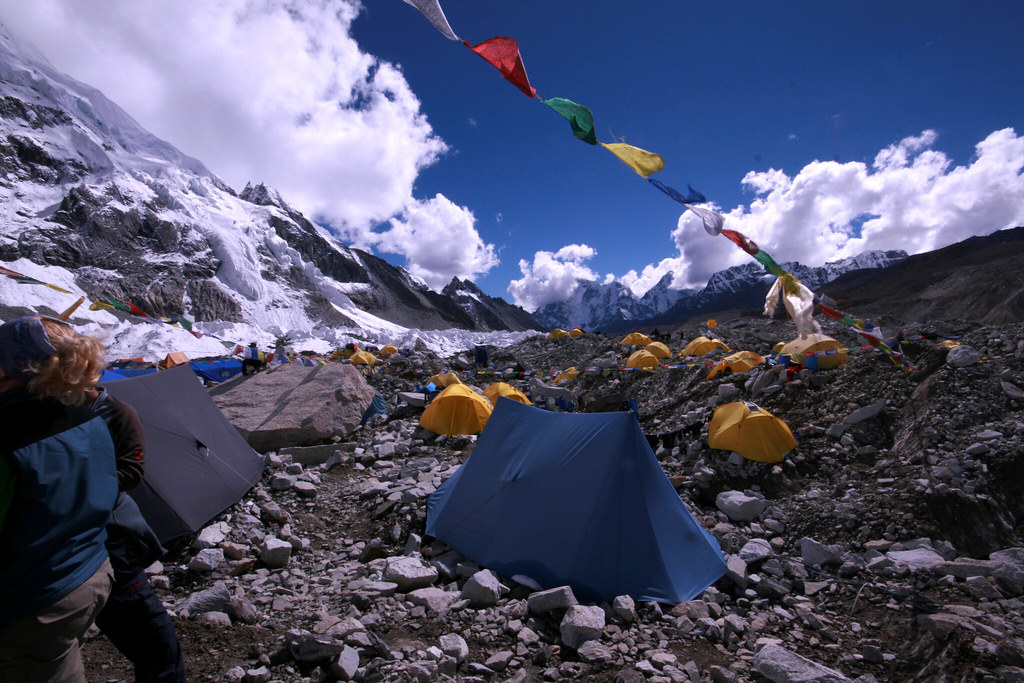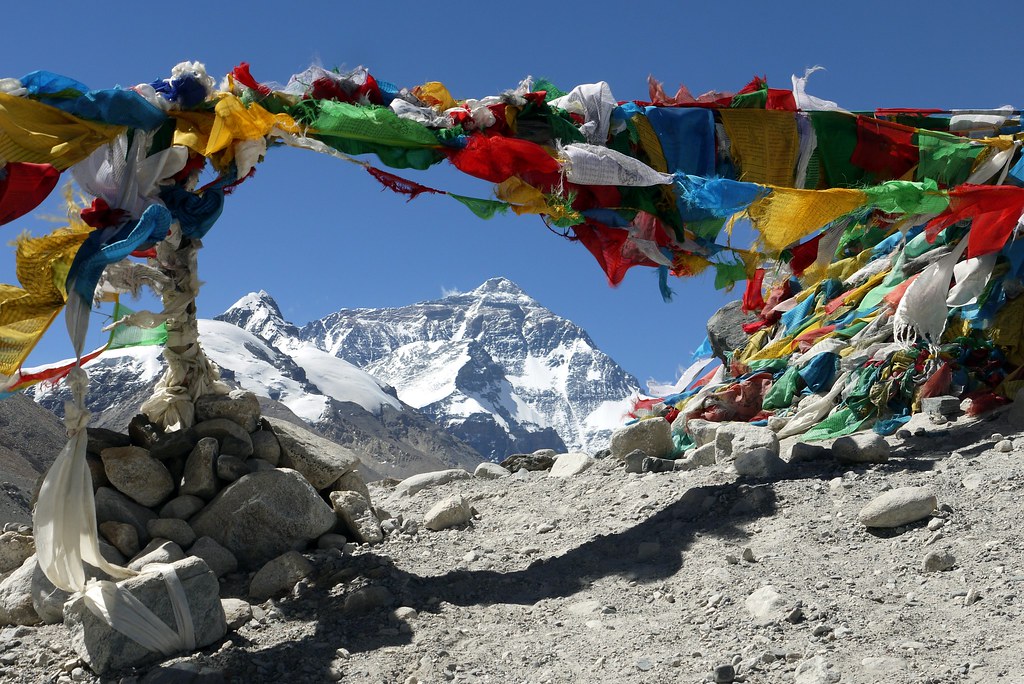 “Mt. Everest Base Camp” by emifaulk is licensed under CC BY 2.0
“Mt. Everest Base Camp” by emifaulk is licensed under CC BY 2.0
The Everest Base Camp Trek, through the soaring Himalayan mountain range, presents a (manageable) physical challenge, a psychological reward, and an uplifting experience to treasure for a lifetime. Part of its appeal is that it taps into the innate human instinct of exploration and allows a reconnection to nature on a grand scale.
Exploring: Human Nature
In the increasingly secular society of the western world, we often look to nature to revive a sense of spirituality missing from our modern lives. And nature rarely disappoints. Whether it is a thunder-storm, a paddle in the sea, a country walk, or even the sun on our face, there is something about being exposed to the elements that restores our sense of humanity.


Mountaineering is at the extreme of this idea, with climbers returning tired but exhilarated – exulted even – from their brush with a mountain and an uncompromising environment. Mount Everest (8,848 m) never fails to capture the imagination of outdoor enthusiasts, and trekking to see Everest Base Camp (5,360 metres) is ideal for people who don’t have the climbing skills necessary to tackle Everest’s summit, but still have an adventurous spirit, and an appetite to see the world’s highest mountain at close quarters.
The Spirituality of the Himalaya
Along the trails leading to Everest Base Camp, you may get a sense of the spiritual nature of the region. Although Hindus makes up a large proportion of Nepal’s population, the Everest region has strong historical ties to Buddhism, and you can see evidence of this in the way the mountains have been decorated. There are monuments called stupas and chortens, which bring luck if you pass them on the left, and multi coloured prayer flags are prevalent; in the villages, on the mountains, even around Everest.


And of course, there are the Buddhist monasteries you will pass on the Everest Base Camp Trek, a source of inspiration and comfort for many adventurers. In 1953, when Tensing Norgay made the first successful trek to the peak with Edmund Hillary, he was happy that when he looked down from the top of the world (3,300 metres above Everest Base Camp and 8848 metres above sea level) he could make out the Rombuk monastery below.
But the Sherpa people of Nepal have a spirituality and connection with the mountains that transcends religions. They call Mount Everest Chomolungma, “Goddess Mother of the World” and they are at ease in the high altitude and difficult conditions. Despite the hardships of their everyday lives the Nepalese people are unfailingly amiable, welcoming and resilient, as if they know something about life that we don’t.
Reaching your Goal – Enriching your Soul
Of course achievement is a great part of every adventure. Knowing you have done something out of the ordinary, or even extraordinary, is a thrill that lifts the soul. But it is not completism that brings people back to the ‘abode of the gods’ again and again – although the challenge is innate to the sense of reward it is the reconnection with nature and the mountain goddesses of the world that drives people outdoors and uphill. The Everest Base Camp Trek could breathe life into your existence.
Author Resource:-> Jude Limburn Turner is the Marketing Manager for Mountain Kingdoms, an adventure tour company who have run the classic trek to Everest Base Camp (https://www.mountainkingdoms.com/holiday/everest-base-camp-trek) for over 20 years. They now offer treks and tours to destinations worldwide.
By: Jude Limburn



